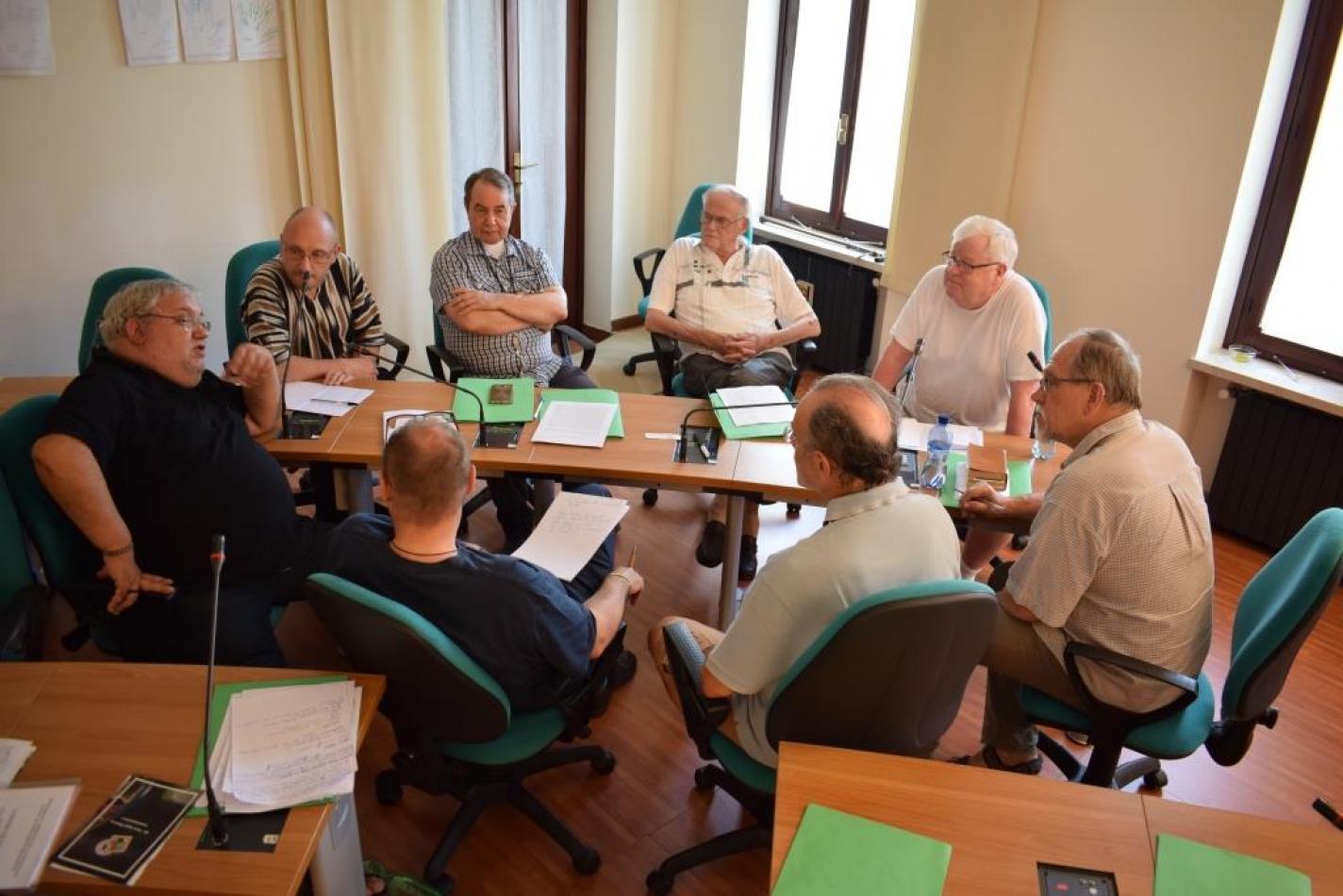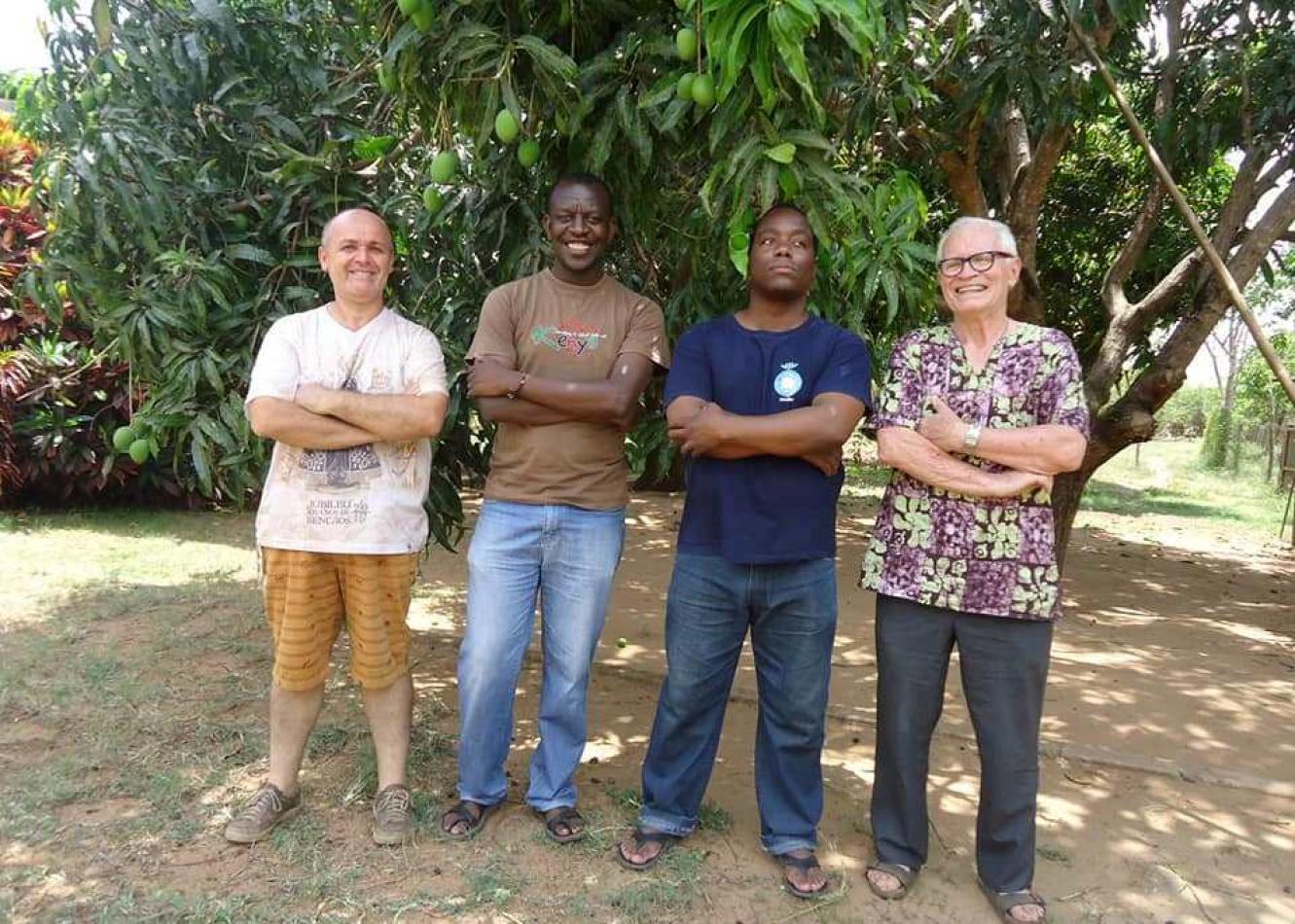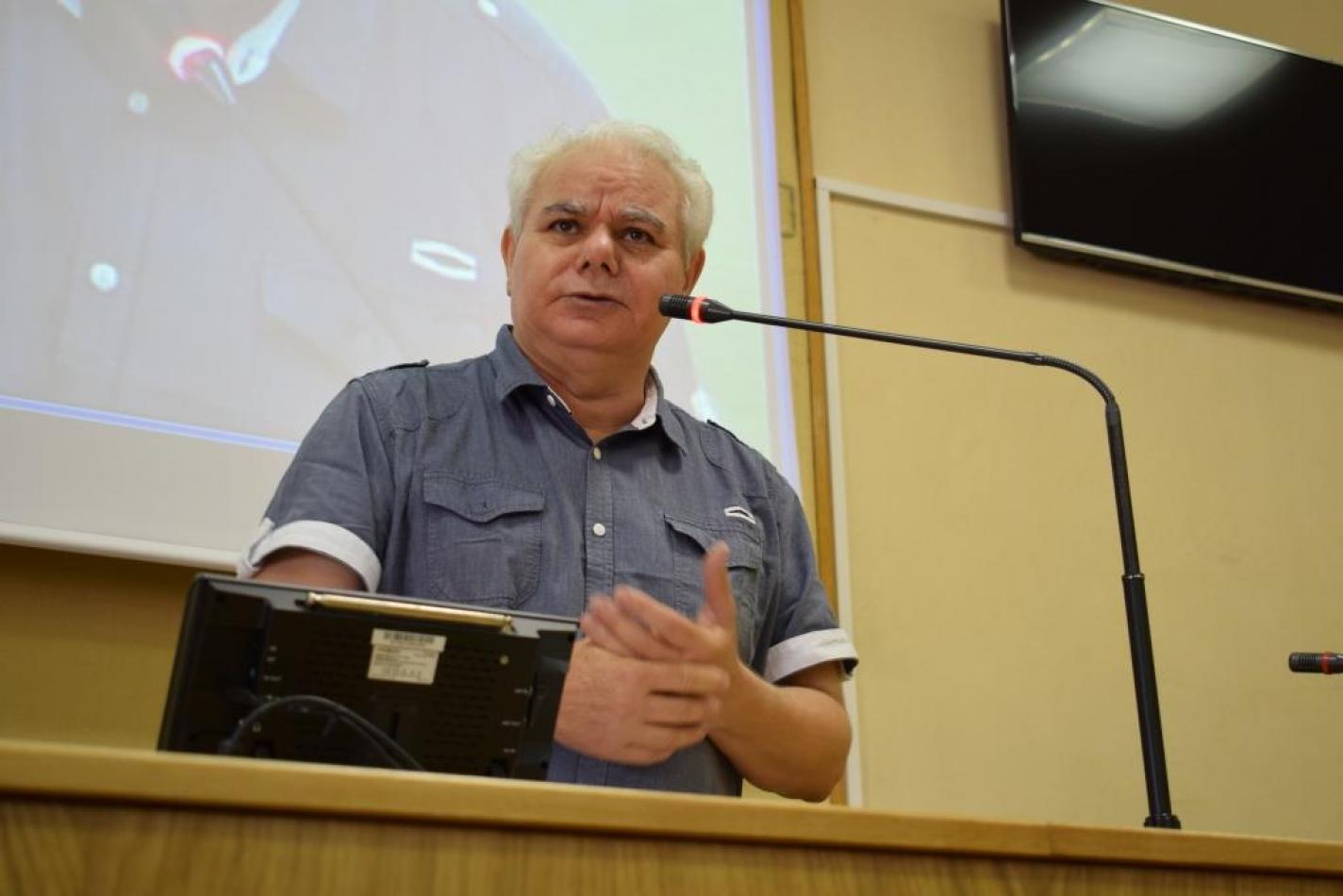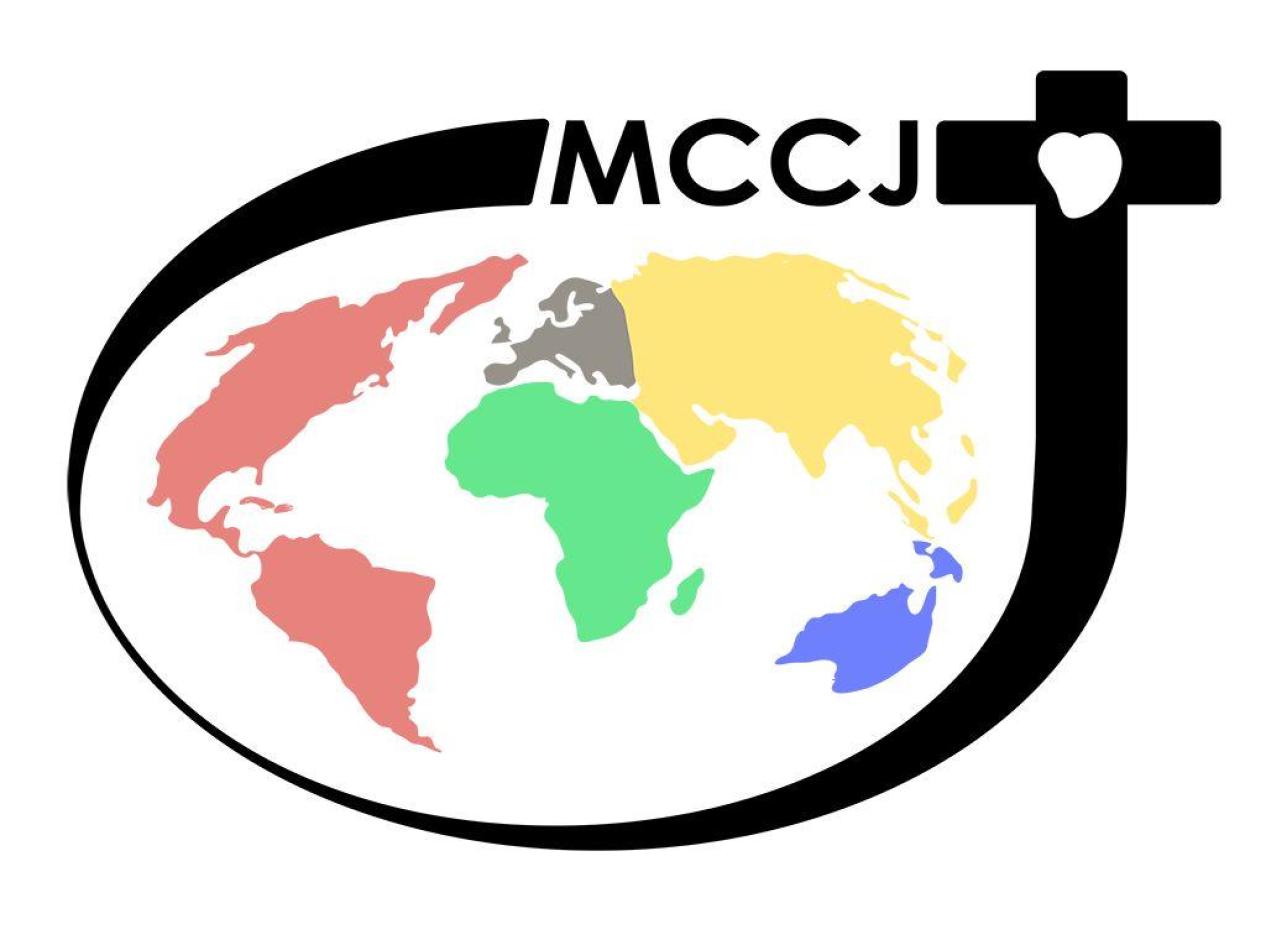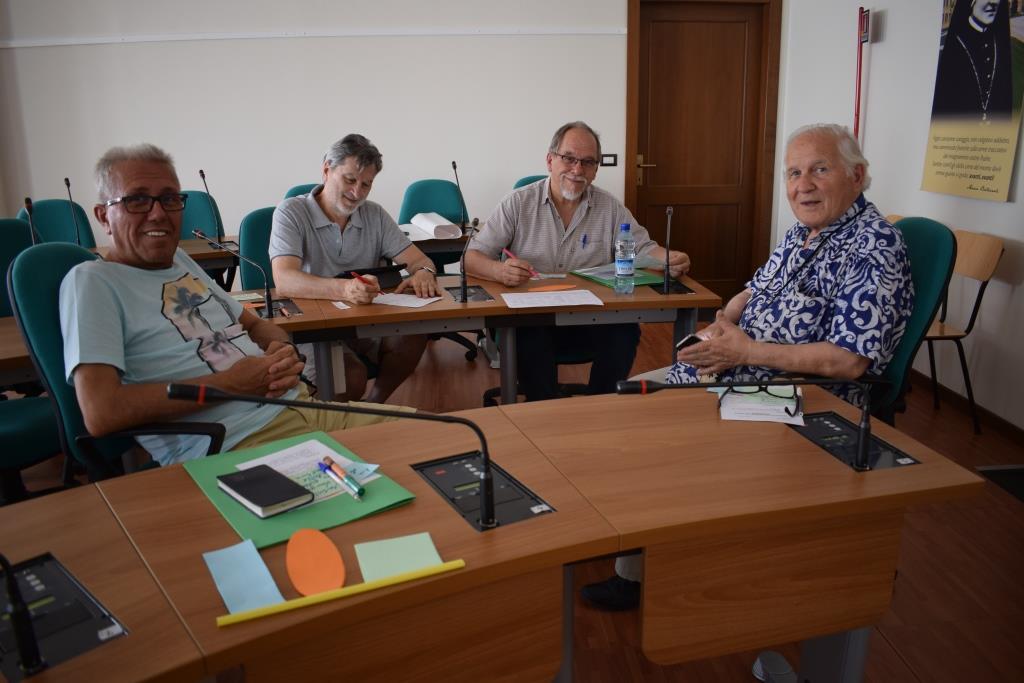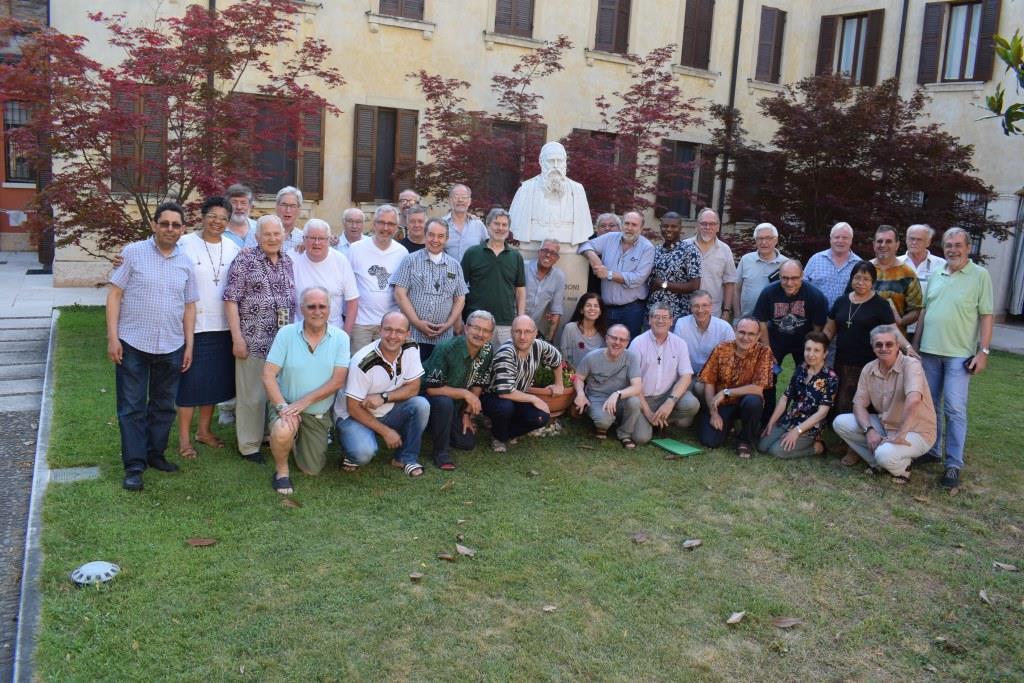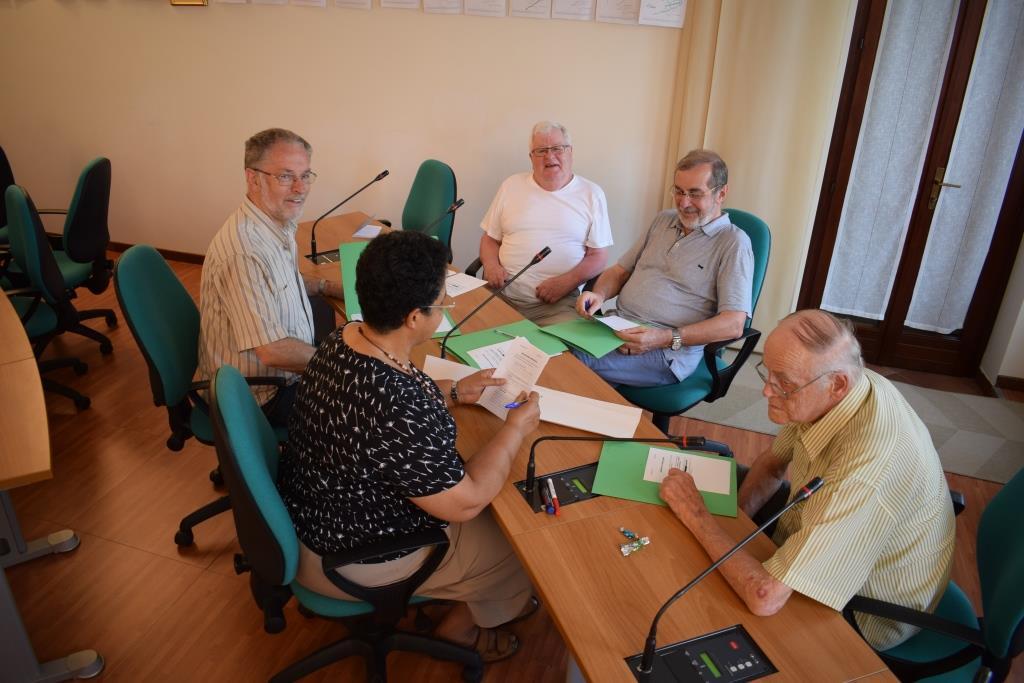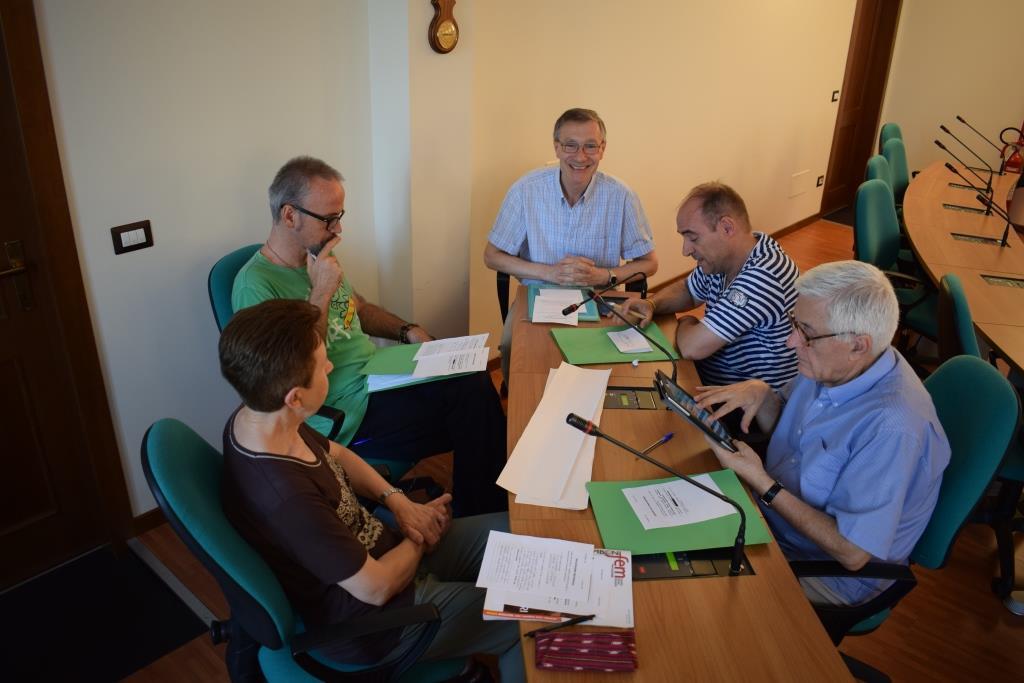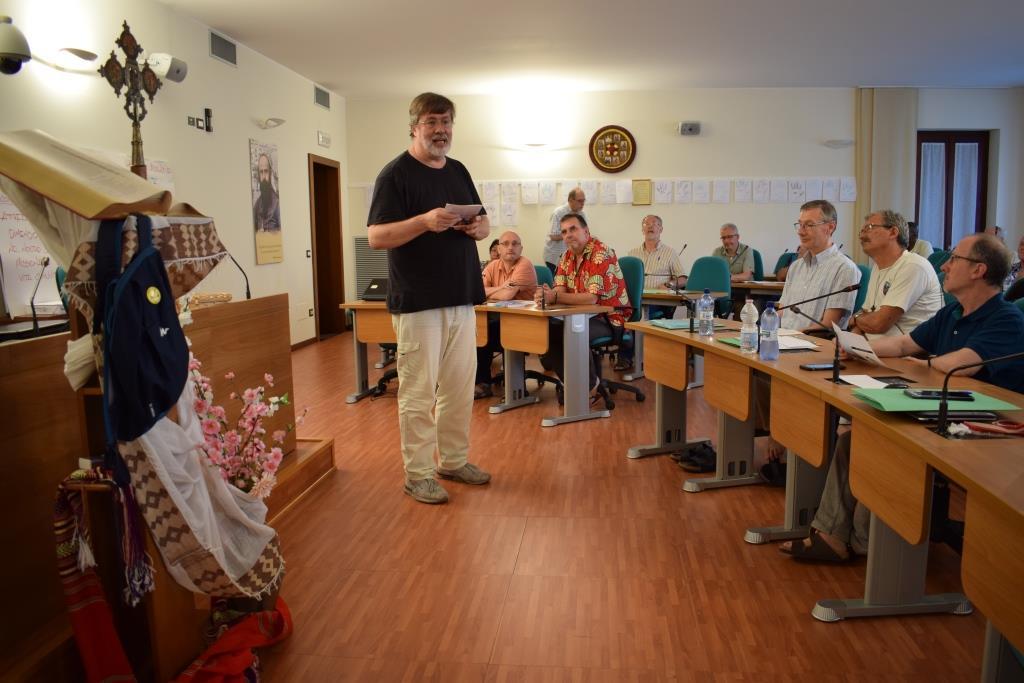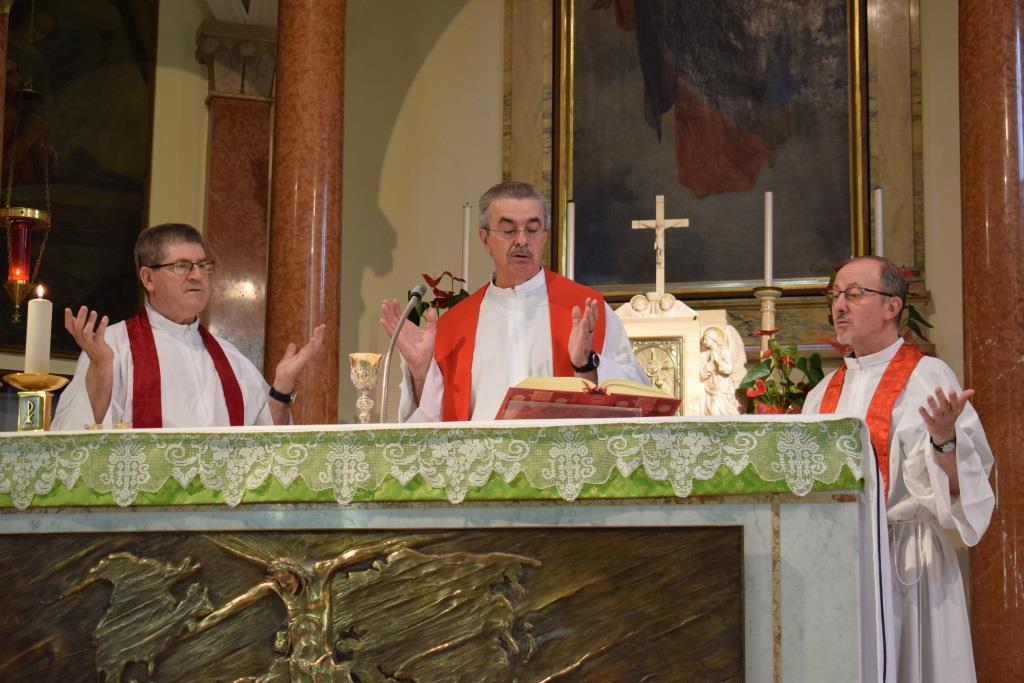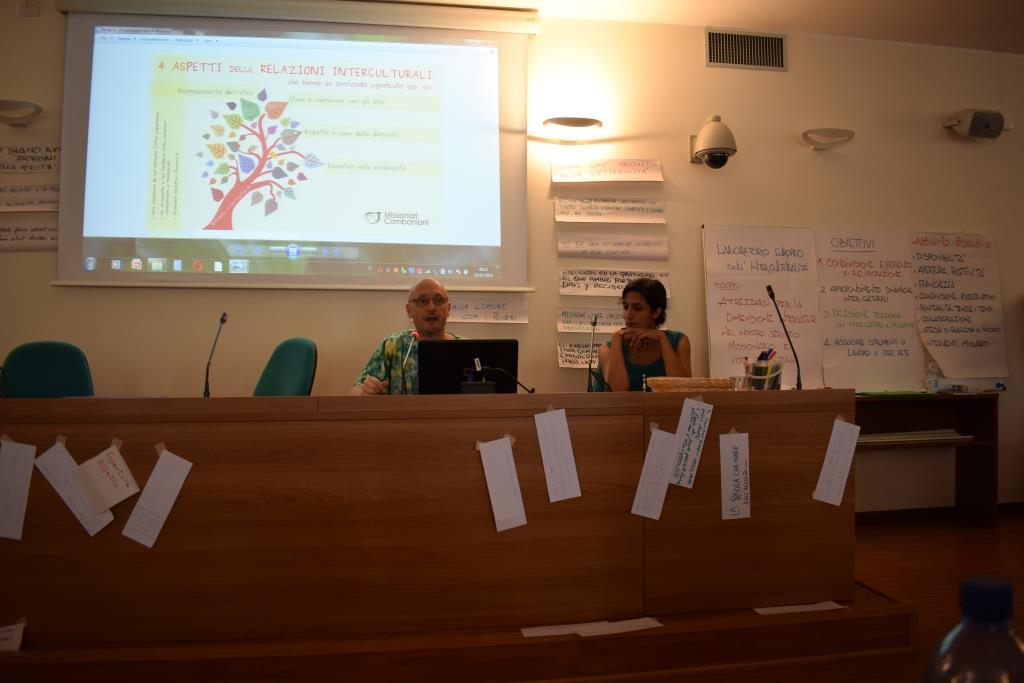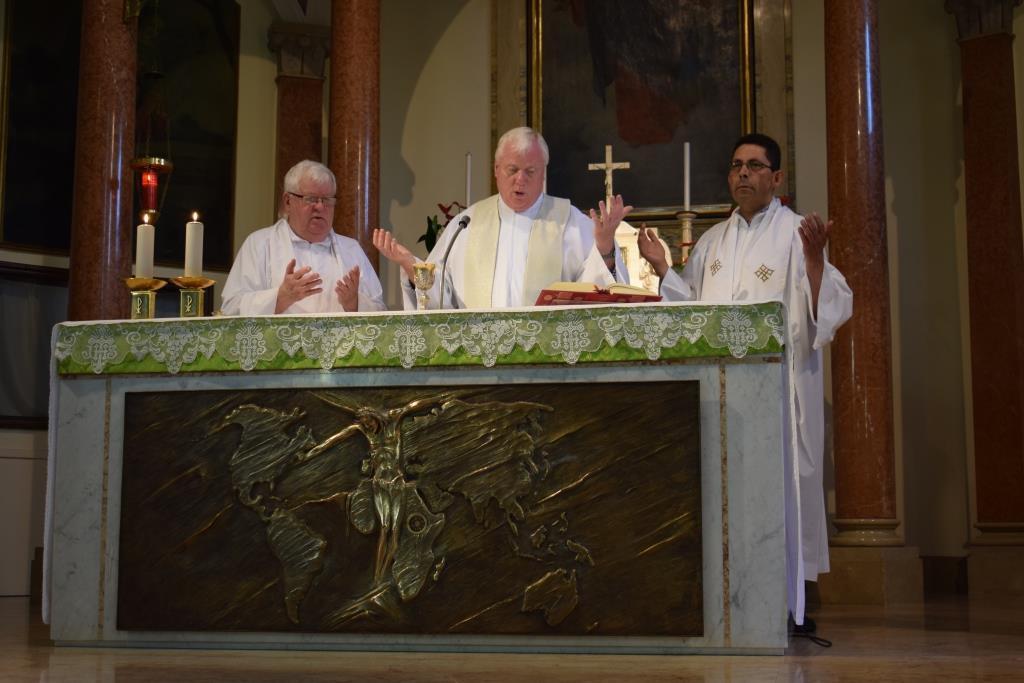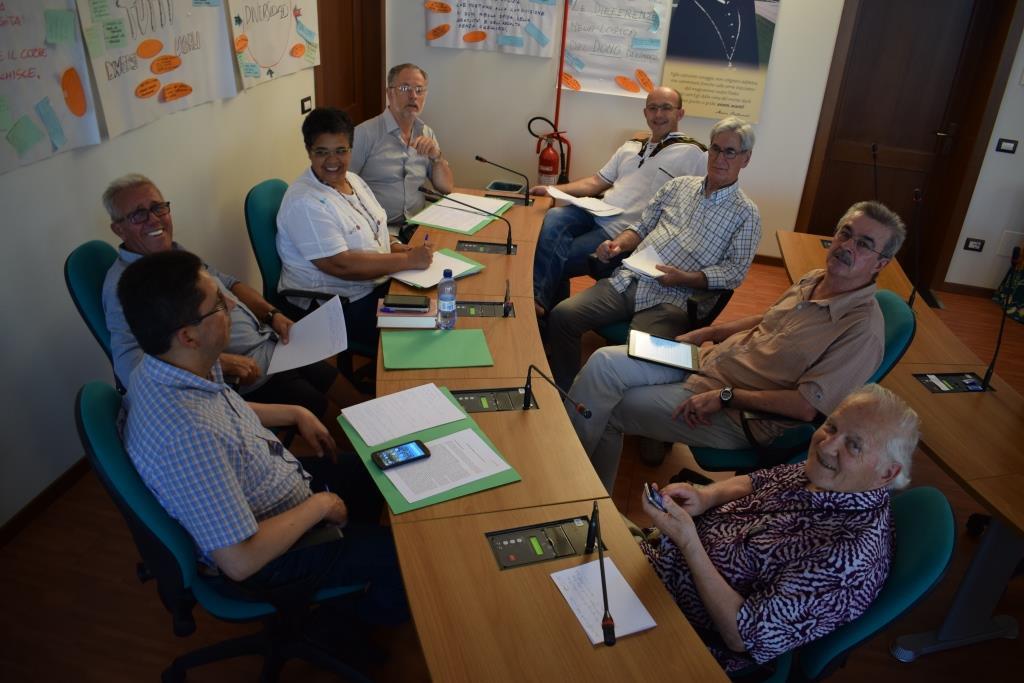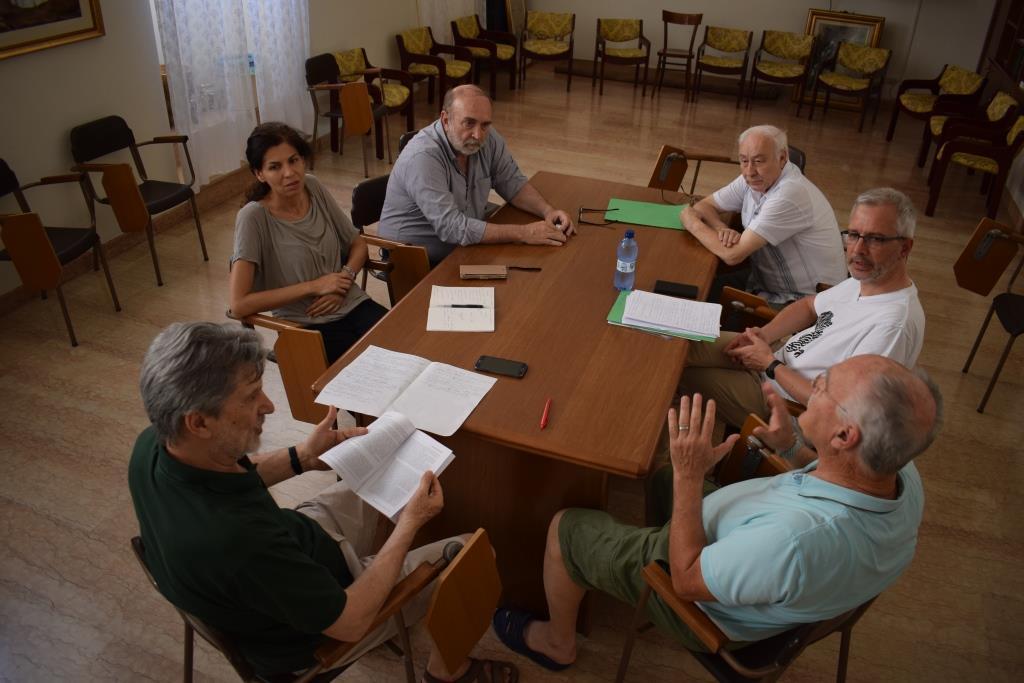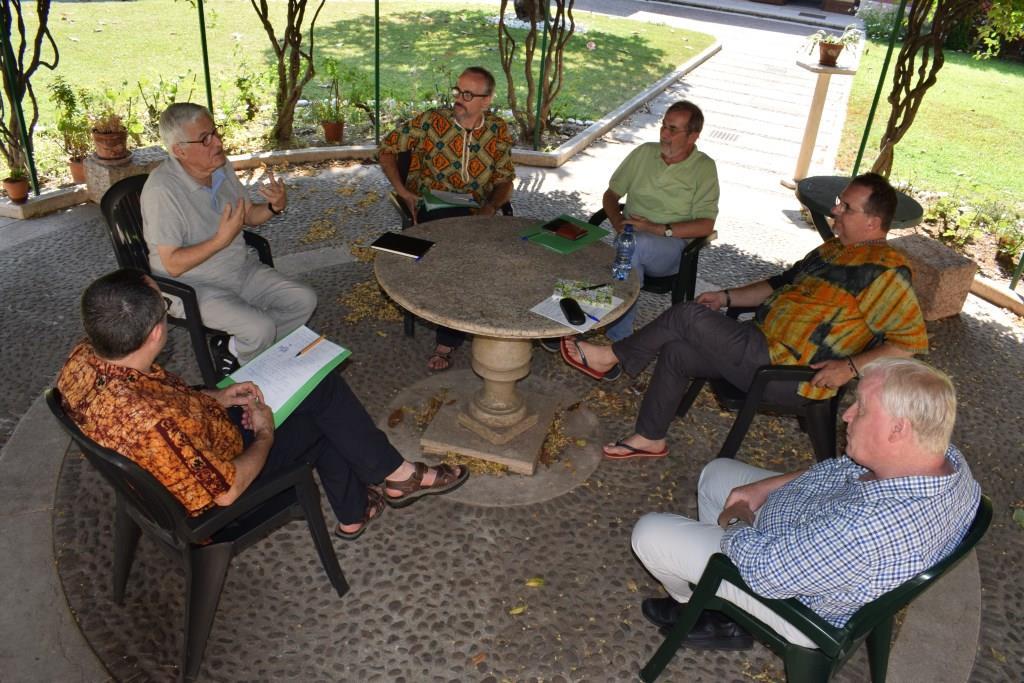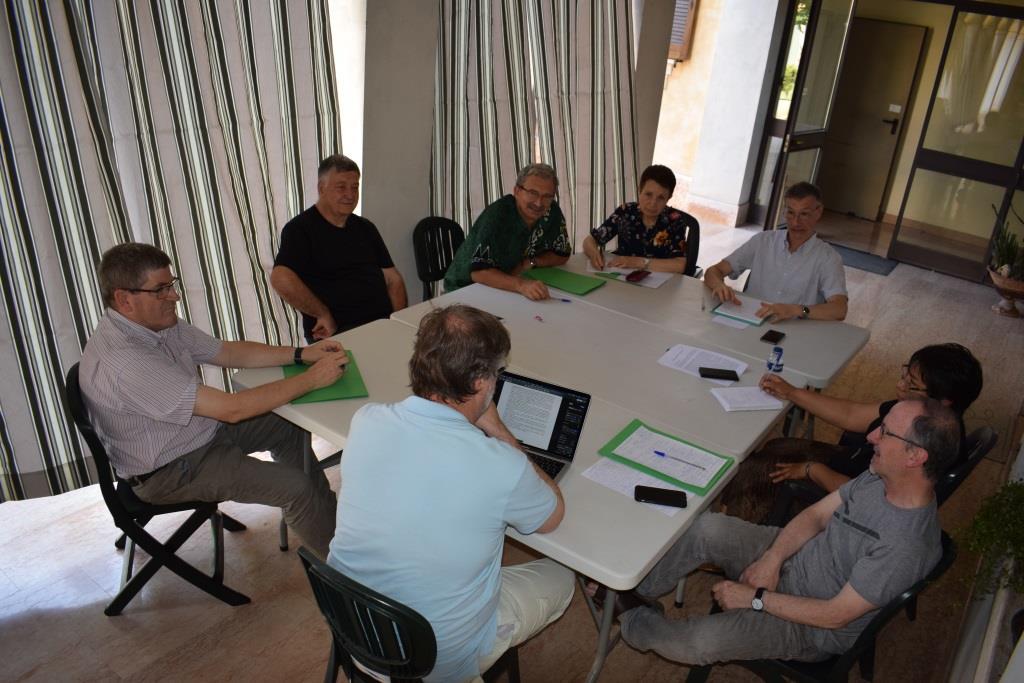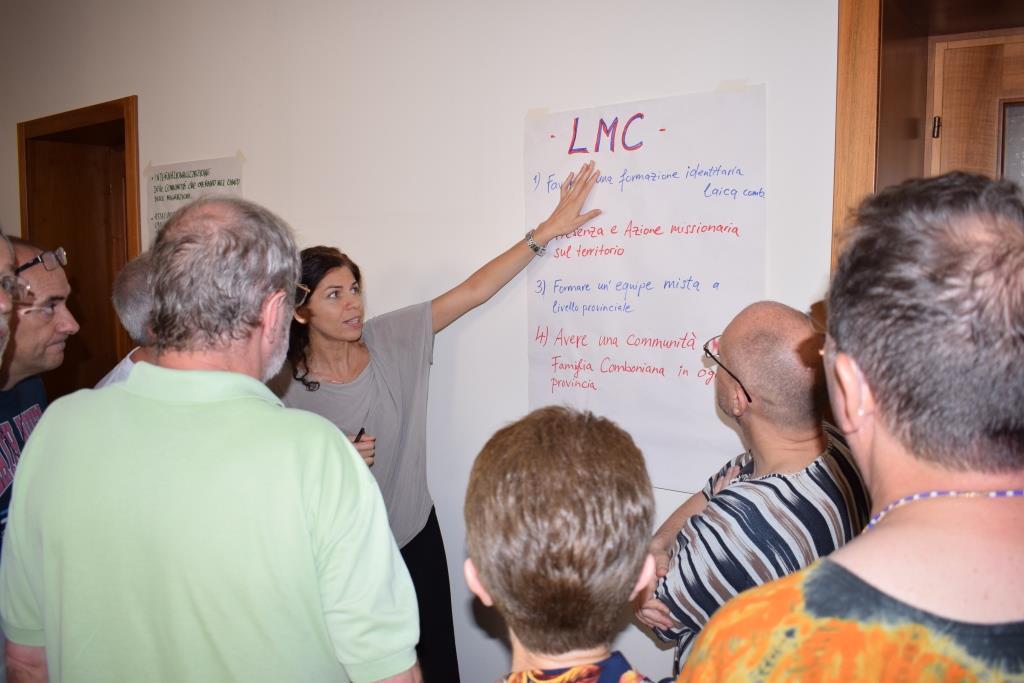Daniel Comboni
Comboni Missionaries
Institutional area
Other links
Newsletter
Tuesday, July 9, 2019
The Comboni Missionaries are dedicating this year 2019 to a reflection on interculturality. To delve more deeply into this theme the provincial superiors and the member of the mission secretariats of the six European Comboni circumscriptions organized a workshop on interculturality that took place at the Mother House of the Comboni Sisters in Verona, Italy, on July 1-6. About forty missionaries attended, including two sisters a secular and a Comboni Lay Missionary.
The theme of the workshop, that this year replaced the Symposium of Limone, was Interculturality and mission. The intercultural praxis as a missionary challenge.”
The event, promoted by the European Mission Council, ha as its objective to give to the missionaries tools to deal with the intercultural dimension of their communities and in their mission service, to recall and concretize the contents of the 2018 Symposium of Limone on “Mission and interculturality,” blending reflection and practical proposals and finally uniting the ministries present in the mission secretariat, namely mission promotion, migrants, JPIC, lay people, and communications.
The program of the workshop encouraged a pro-active and cooperative methodology both at the rational and at the emotional level, properly giving time to personal reflection, active listening and sharing in small groups.
July 2, the first day of reflection, was given to small group sharing of the concrete experiences of each participant, trying to discover and learn the intercultural dynamics emerging from these personal stories. Then, starting from the heart of mission, from the deep, challenging fruitful encounter with others, the Comboni Missionaries tried to re-elaborate the experiences they carry in their hearts, from the depths of their own lives. “From receiving two eggs from a very poor woman living in a hut in Bukavu, DRC. Letting myself be transformed from within by an unexpected gesture that I could not understand,” said one of the participants. This contributed to the entwining of shared experiences that remind us how the school of life can move convictions and stereotypes deeply ingrained into certainties petrified by time.
This in order to reach some syntheses that reach the heart of intercultural mission. A true magnetic point for the work of the Comboni missionaries in Europe and in the world: meeting in reciprocity, respect and care of diversity, to be and journey with others, acknowledging others.
Solutions remain at the horizon, in front of the missionaries. But the way to them includes promotion of listening, trust and understanding, the search for common grounds and hopeful dialogue. All of this in a spirituality that accept the uneasiness and suffering of opening to the unexpected in God.
The third day was guided by the reflections of Fr. Paolo Boschini, a front-line priest from a parish in Modena and professor of philosophy at the University of Bologna, who introduced some theological and biblical points for a missionary spirituality in some very intercultural contexts. “In the realities we face there are no cultures, but mixtures, there is no identity but a hybrid. We do not really have cultures but intertwining worlds, many crisscrossing horizons, where no one is self-sufficient. The wave of nationalism invading Europe is dictated by a cognitive distortion. We think that cultures exist while in reality they are just constructions, and often after the fact.” Thus Fr. Paolo provoked his listeners.
The Comboni missionaries of Europe listened to him with great interest, because his reflections come from life on the street, on the border between parish and periphery, mosque and church, from the mingling of languages, faces, dreams, gazes that betray the pace of humanity moving towards different horizons.
The cultural interpreter Devisri Nambiar, on the second day, and the Comboni psychologist Giuseppe Crea, on the fourth day, also contributed to delve more deeply in the various processes, interpersonal and intercultural relations, and also gave some tools to help us move within this intermingling of different worlds and people.
Through skits on routine conflicts and group work, the Comboni Missionaries attempted to find strategies to be used to solve in a concrete way conflicts arising from the meeting of persons from different places, keeping in mind the contexts, the presence of mediators and the feelings of the protagonists. Faced with the Ugandan guest who refuses to eat sheep meat, the host simply adapts and prepares pasta without sauce. No problem. But when the conflicts touch on points endangering community life, that is when the problems emerge. When the inhabitants of a condominium speak loudly, play loud music and improvise dances at night, sooner or later someone is bound to react.
What to do then? For sure, we must keep control of our communication with the others, really wanting to understand, in a language made of gestures, words and signs, what is the content of the communication, what people reveal about themselves, what they want from others and what changes in the relation. Then we must open up, by telling about ourselves and letting the others give us very precious feedbacks to better understand our own prejudices and cultural stereotypes.
The workshop was like a building site full of encounters, ideas and proposals to be evaluated on the grounds of a mission that in Europe takes place more and more outside the conventional limits. It is a mission that takes to the streets, public squares and peripheries where lives and hope mix in order to move towards the construction of a multi-universal vision of life, where cultures are a thing of the past, because they are strongly ethnocentric, in order – as Fr. Paolo Boschini reminded us – “to let ourselves be embraced by a horizon that is all embracing.”

